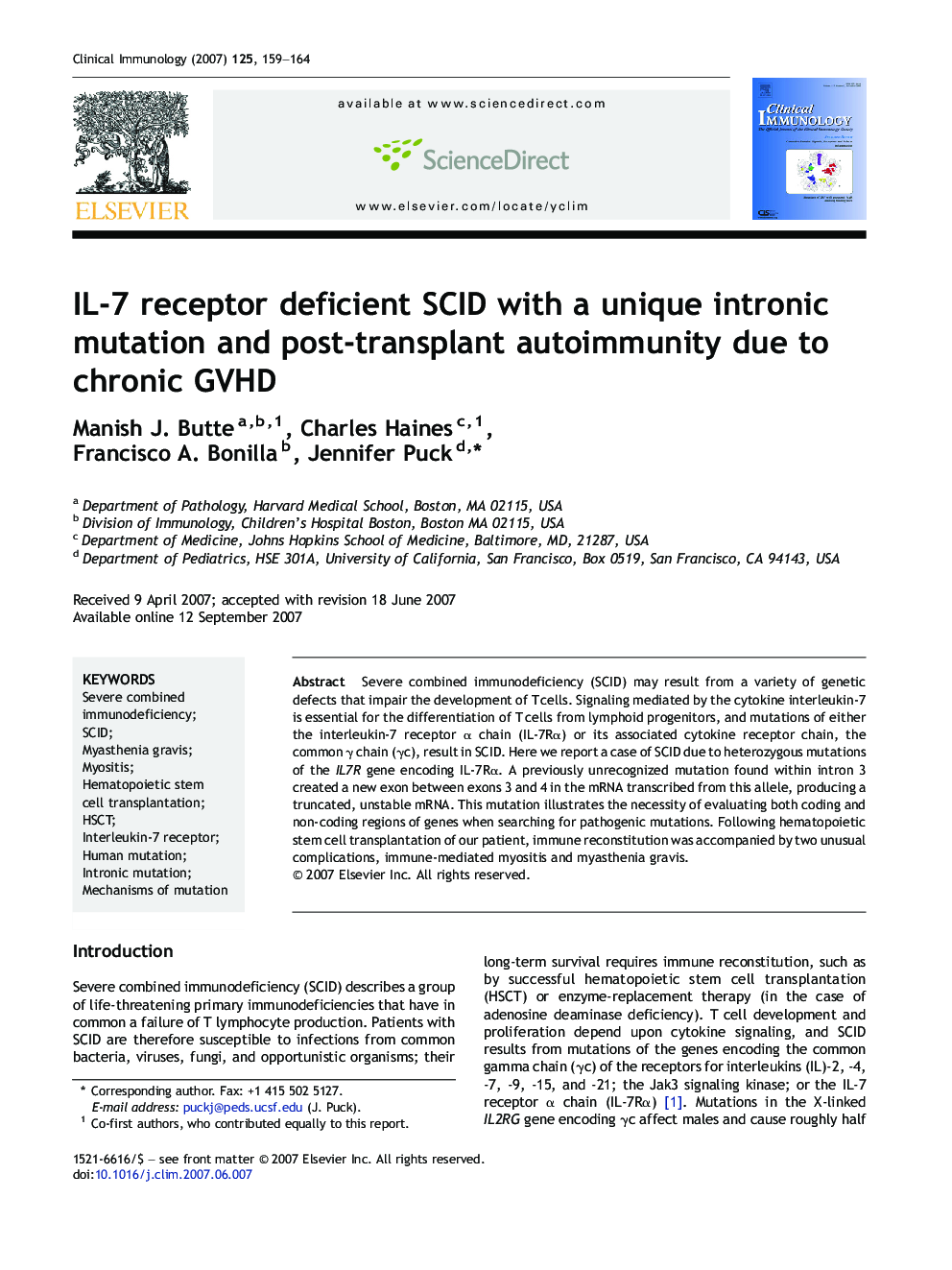| Article ID | Journal | Published Year | Pages | File Type |
|---|---|---|---|---|
| 3258513 | Clinical Immunology | 2007 | 6 Pages |
Severe combined immunodeficiency (SCID) may result from a variety of genetic defects that impair the development of T cells. Signaling mediated by the cytokine interleukin-7 is essential for the differentiation of T cells from lymphoid progenitors, and mutations of either the interleukin-7 receptor α chain (IL-7Rα) or its associated cytokine receptor chain, the common γ chain (γc), result in SCID. Here we report a case of SCID due to heterozygous mutations of the IL7R gene encoding IL-7Rα. A previously unrecognized mutation found within intron 3 created a new exon between exons 3 and 4 in the mRNA transcribed from this allele, producing a truncated, unstable mRNA. This mutation illustrates the necessity of evaluating both coding and non-coding regions of genes when searching for pathogenic mutations. Following hematopoietic stem cell transplantation of our patient, immune reconstitution was accompanied by two unusual complications, immune-mediated myositis and myasthenia gravis.
